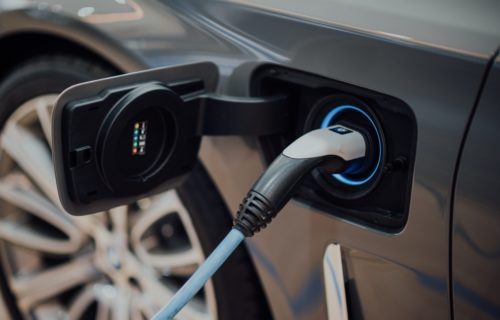POHANG, South Korea — What’s the most frustrating part of owning an electric vehicle? For many, it’s the time it takes to recharge the battery, especially when you’re on a long road trip. A recent breakthrough in battery technology could change that. Scientists at Pohang University of Science and Technology in South Korea are developing a new anode material that can charge an electric vehicle (EV) in as little as six minutes.
Right now it can take up to 10 hours to fully charge an EV. There’s long been a debate about the best times to charge an electric vehicle because of the amount of time it takes. In recent years, manufacturers are racing to create options that cut this process down to a matter of minutes.
The team, led by Professor Won Bae Kim, utilized a novel self-hybridization technique to synthesize manganese ferrites nanosheets, known for their exceptional lithium-ion storage capacity. By enlarging the surface area of the anode material, they enabled the simultaneous movement of a large number of lithium ions, resulting in significantly improved charging speed. Experimental results demonstrated that a battery with a capacity equivalent to those used in current EVs can be fully charged and discharged in just six minutes.
“The research holds the potential to significantly increase the energy density of lithium-ion batteries through the incorporation of high-capacity anode materials, thereby extending the driving range of electric vehicles. Silicon-based anode materials could potentially increase driving range at least tenfold,” says Professor Soojin Park in a media release.
The development holds immense promise for the future of electric vehicles, making them more convenient and efficient for everyday use. With faster charging times, the barrier to adopting electric vehicles could be significantly reduced, paving the way for a greener and more sustainable transportation system.
This groundbreaking research opens doors to further advancements in battery technology and marks a significant step forward in the journey toward a cleaner, electric-powered future. With continued innovation and investment in sustainable energy solutions, we are one step closer to driving a more environmentally friendly world.
What are the best EV’s out on the market now? Click here.
The study is published in the journal Advanced Functional Materials.

Most EVs can charge at a much faster rate than described in this article. 30 minutes is typical. 8 hours is the time it takes on a home charger which you usually do when you’re sleeping anyway.
Please don’t mislead people about electric cars!
Not from experience.Finding functioning chargers is a pain .At 75 life is too short to be wasting time to find chargers and planning long journeys.EVs make good shopping trolleys for elderly and couch potatoes.For someone who likes to travel long distances with camping and sports equipment EVs are useless ,especially in out of the way areas of the Scottish Highlands ,Central Wales and Eastern Europe.My 2 litre diesel Estate does 75 mpg on long trips which gives meabout 800 miles of range previous diesels I had did 82 mpg and 87 mpg.No worries about running out of power and plenty to spare.
When reasonably priced vehicles come onto market with a 700 800 mile range I will consider one.
Travel broadens the MIND,
Couches broaden the BEHIND.